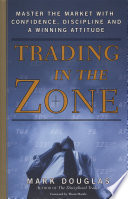

A trader's mindset is critical to their success. Unlike traditional investments that may rely more on fundamental analysis, trading requires a psychological edge. The book emphasizes that traders must cultivate a mindset that embraces uncertainty and risk. This involves understanding and accepting the emotional aspects of trading, such as fear and greed, and developing a disciplined approach that allows for rational decision-making. A trader who can maintain a calm and focused mindset amidst market volatility is more likely to make sound judgments and avoid impulsive actions that can lead to losses.
Continue readingBeliefs shape how traders interpret market information and respond to price movements. The book argues that many traders hold limiting beliefs that hinder their performance, such as fear of loss or a belief that they cannot be successful. By identifying and challenging these beliefs, traders can reframe their perspectives and improve their trading outcomes. The author encourages readers to cultivate empowering beliefs that align with successful trading practices, allowing them to approach the market with confidence and resilience.
Continue readingEffective risk management is a cornerstone of successful trading. The book outlines various strategies for managing risk, including setting stop-loss orders, determining position sizes, and diversifying trades. By implementing robust risk management techniques, traders can protect their capital and minimize losses. The author emphasizes that understanding and accepting risk is essential; traders must be willing to lose in order to succeed in the long run. This acceptance of risk enables traders to make decisions based on logic rather than emotion, ultimately leading to better trading outcomes.
Continue readingTrading is inherently a probabilistic endeavor. The book explains that traders must approach the market with a mindset that values probabilities over certainties. This involves analyzing historical data, understanding market patterns, and recognizing that not every trade will be a winner. The author encourages traders to focus on the long-term probabilities of their trading strategy rather than fixating on individual trades. By embracing the concept of probability, traders can develop a more objective approach that reduces emotional decision-making and enhances overall performance.
Continue readingA well-defined trading plan is crucial for consistent success. The book outlines the components of an effective trading plan, including entry and exit strategies, risk management rules, and performance evaluation metrics. By adhering to a structured plan, traders can avoid impulsive decisions driven by emotions. The author stresses the importance of testing and refining the trading plan over time, ensuring that it aligns with the trader's goals and market conditions. A solid trading plan serves as a roadmap, guiding traders through the complexities of the market.
Continue readingTraders often face psychological barriers that impede their performance. The book identifies common issues such as overtrading, revenge trading, and the fear of missing out (FOMO). These behaviors stem from emotional responses to market fluctuations and can lead to detrimental decision-making. The author provides strategies for overcoming these psychological barriers, such as mindfulness practices and self-reflection exercises. By addressing the root causes of these behaviors, traders can develop a healthier approach to trading that fosters discipline and focus.
Continue readingThe trading landscape is constantly evolving, making continuous learning essential for success. The book encourages traders to stay informed about market trends, economic indicators, and technological advancements that may impact their strategies. Additionally, the author advocates for learning from past trades, both successes and failures, to refine one's approach. By adopting a growth mindset and being open to new ideas, traders can adapt to changing market conditions and improve their overall performance.
Continue readingThe reading time for Trading in the Zone depends on the reader's pace. However, this concise book summary covers the 7 key ideas from Trading in the Zone, allowing you to quickly understand the main concepts, insights, and practical applications in around 25 min.
Trading in the Zone is definitely worth reading. The book covers essential topics including The Importance of Mindset in Trading, The Role of Beliefs in Trading Performance, Risk Management as a Foundation of Trading, providing practical insights and actionable advice. Whether you read the full book or our concise summary, Trading in the Zone delivers valuable knowledge that can help you improve your understanding and apply these concepts in your personal or professional life.
Trading in the Zone was written by Mark Douglas.
If you enjoyed Trading in the Zone by Mark Douglas and want to explore similar topics or deepen your understanding, we highly recommend these related book summaries:
These books cover related themes, complementary concepts, and will help you build upon the knowledge gained from Trading in the Zone. Each of these summaries provides concise insights that can further enhance your understanding and practical application of the ideas presented in Trading in the Zone.